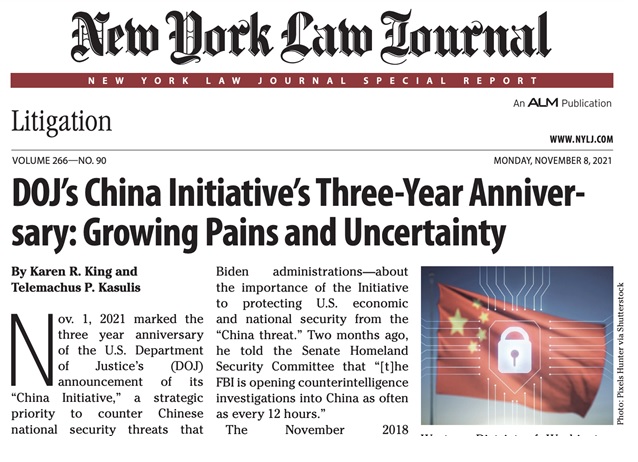
| For Immediate Release: Date: September 12, 2024 | Contact: Rahat N. Babar, Deputy Executive Director |
WASHINGTON – On September 11, 2024, the United States House of Representatives passed two bills that, if enacted, would racially profile members of the Asian American, Native Hawaiian, and Pacific Islander (AANHPI) community under the guise of national security. While policymakers have the prerogative to address the legitimate national security concerns confronting the United States, they may not enact discriminatory laws that target the AANHPI community. In no uncertain terms, the National Asian Pacific American Bar Association (NAPABA) condemns the actions of the House, which instill unwarranted fear and suspicion on individuals solely because of their national origin.
First, the House passed H.R. 1398, Protect America’s Innovation and Economic Security from CCP Act of 2024, a bill that would reinstate the disbanded and discredited China Initiative program within the U.S. Department of Justice. NAPABA has previously denounced the China Initiative, which created a chilling effect around scholars of Chinese ancestry and, at worst, countenanced impermissible racial profiling.
Second, the House passed H.R. 9456, Protecting American Agriculture from Foreign Adversaries Act of 2024, a bill that would require the Committee on Foreign Investment in the United States (CFIUS) to review any agricultural land purchases, regardless of size or scope, by any person from China, North Korea, Russia, or Iran, even if they are lawfully present in the United States, green card holders, have nothing to do with the regimes in these countries, or refugees fleeing persecution from those governments. By mandating such a referral to CFIUS, the bill would effectively designate any individual from those countries as a national security risk based solely on national origin.
NAPABA has long opposed legislation that discriminates based on national origin alone rather than on evidence of malign conduct and has worked with policymakers at all levels to avoid discriminatory policies. Such policies equate ordinary Chinese, Korean, Iranian, and other persons with governments, political parties, or state-owned enterprises even if they have no affiliation with such entities. While NAPABA recognizes the geopolitical tensions and competition with countries such as China, the passage of laws that restrict civil rights without an appropriate and legitimate, evidence-based nexus to national security creates an atmosphere of distrust that easily targets Asian Americans, not just those of Chinese descent. As the political rhetoric rises in this election season, leaders must avoid actions that promote bigotry and racism against Asian Americans.
NAPABA objects to the passage of these bills and calls on the United States Senate to reject them.
###
The National Asian Pacific American Bar Association (NAPABA) represents the interests of over 80,000 Asian Pacific American (APA) legal professionals and nearly 90 national, state, and local APA bar associations. NAPABA is a leader in addressing civil rights issues confronting Asian American, Native Hawaiian, and Pacific Islander communities. Through its national network, NAPABA provides a strong voice for increased diversity of the federal and state judiciaries, advocates for equal opportunity in the workplace, works to eliminate hate crimes and anti-immigrant sentiment, and promotes the professional development of people of all backgrounds in the legal profession.


